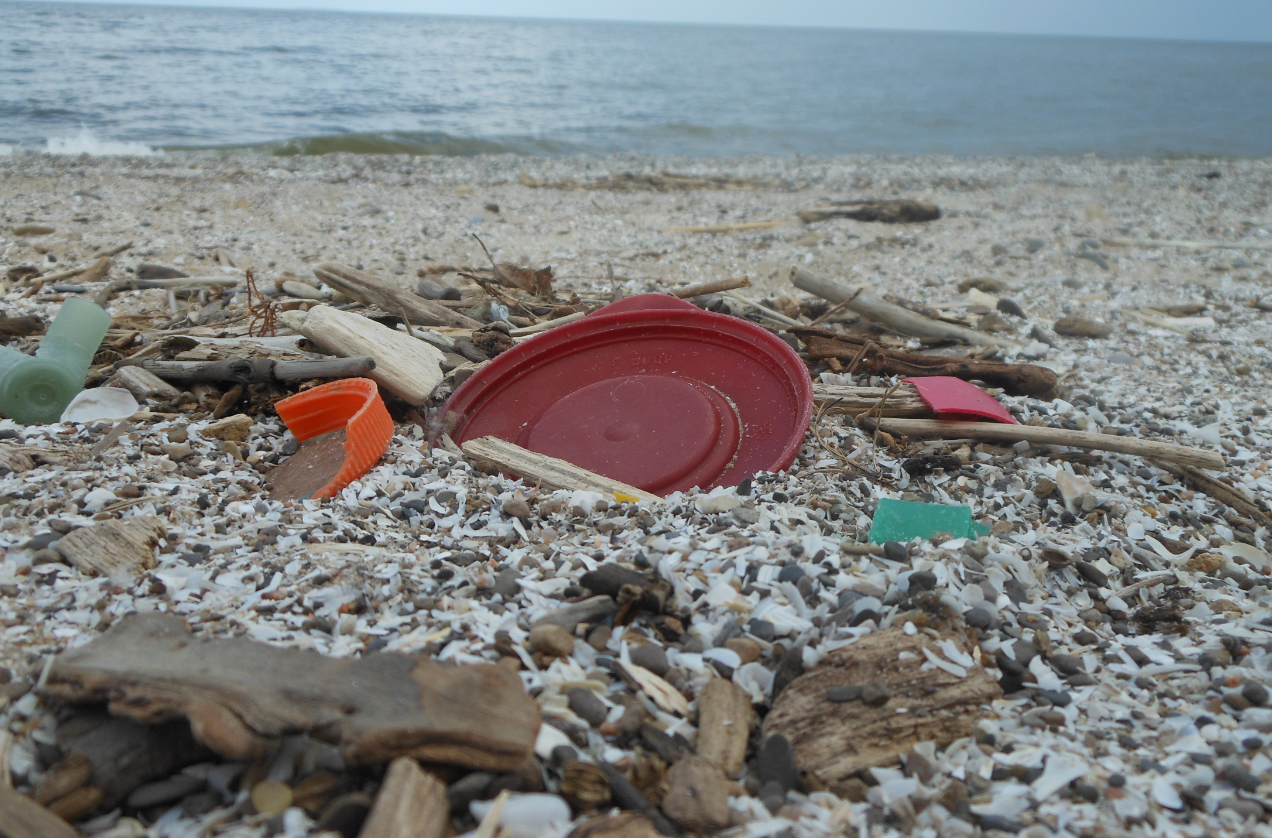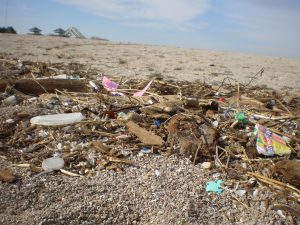
The Psychology of littering
Great Lakes beaches!
Who doesn’t value a clean and healthy beach on a summer day?
In a recent poll of Great Lakes residents, an overwhelming majority of respondents said it’s important to protect the lakes for recreational purposes, including beach visits.
Similarly, respondents said individuals have a responsibility for the health of the lakes.
But there’s a dark side to visiting beaches that illustrates the divide between what people say and what they do.
Does that professed public value of beaches translate to depositing your litter in a trash can before you leave your favorite beach?
Or do you leave bottles, cans, paper, plastic, cigarette butts and a potpourri of undesirable items like dirty diapers strewn about, to be dealt with by someone who comes after you?
If you want the answer to these questions, check the appearance of your favorite Great Lakes beach, especially in urban areas after a holiday weekend.
It may not be a pretty sight.
What is it that allows us to value a natural resource like a beach, yet rationalize a behavior like littering that diminishes the resource and the quality of the experience for everyone?
Mental health counselor Joe Sanok told Great Lakes Now that “while people value the beach and the recreation it provides, they don’t always make that connection between what they value and their behavior.”
Sanok is a Licensed Professional Counselor and owner of Mental Wellness Counseling in Traverse City.

Joe Sanok, Traverse City counselor, Photo by Mental Health Wellness via Gary Wilson
He became interested in the “psychology of trash” after seeing “piles of trash” left on Northern Michigan beaches after events like the Cherry Festival and 4th of July fireworks.
Sanok says “people generally want to do the right thing and not litter, but will often take the easy path.”
If people see others leaving their trash behind or if nearby trash cans are full, they may feel they have permission to litter, according to Sanok. And “nearby” may be a key consideration.
Sanok says at their parks, Disney has found that if people have to walk more than 40 feet to a trash bin, they’re likely to leave it on the ground. For perspective, in baseball, it’s 60 feet from home plate to the pitcher’s mound.
Sanok told Great Lakes Now that “littering runs on a spectrum.”
There are:
- The leave no trace behind people who absolutely will not litter, period.
- Then comes the middle range that wants to do the right thing but may succumb to a “herd littering mentality.”
- Finally, there are those for whom littering is just what they do.
Sanok says alcohol consumption can be a factor that increases the likelihood of leaving trash behind. The same is true for leaving the beach after dark.
How big of a problem is beach littering?
The Chicago Park District manages the city’s 26 beaches and district representative Irene Tostado told Great Lakes Now that the city spends $1.6 million to remove litter and for other beach cleanup activities. That’s only for the official beach season which runs from Memorial day to Labor Day.
The city’s total littering clean up budget is approximately $4 million annually, according to Tostado. The city has a web page that explains littering which says people are more inclined to litter outside of their own neighborhood. They believe it’s ok because maintenance people or concerned citizens will take care of it.
In the Great Lakes region, those concerned citizens may be volunteers with the Alliance for the Great Lakes.
The Chicago-based nonprofit has a longstanding beach cleanup program that spans the region.
Its website says it has 14,000 beach volunteers that pick up trash at specific beaches 3-4 times per year from Spring to Fall.
In 2017 the tally was 36,000 pounds of litter picked up of which 32,000 pounds or 89 percent was plastic.
What’s the solution to our propensity to praise beaches while we trash them?

International Tidyman Logo, Image by unknown via wikimedia
Many times beach rules focus on “no and don’t” language, but Traverse City counselor Sanok suggests an additional approach.
“Beach managers should send a positive message about littering intended to bring out the best in people,” Sanok says. “That message should be repeated multiple times with the intent of rewarding positive behavior.”
Canadian water activist Maude Barlow told Great Lakes Now last year that people in water-wealthy Canada have become complacent about caring for water.
“It’s in our consciousness to love it,” Barlow said. “But it’s not in our consciousness to understand its fragility.”
Perhaps that’s where we are with beaches. We love them, but not to the point of caring for them.







